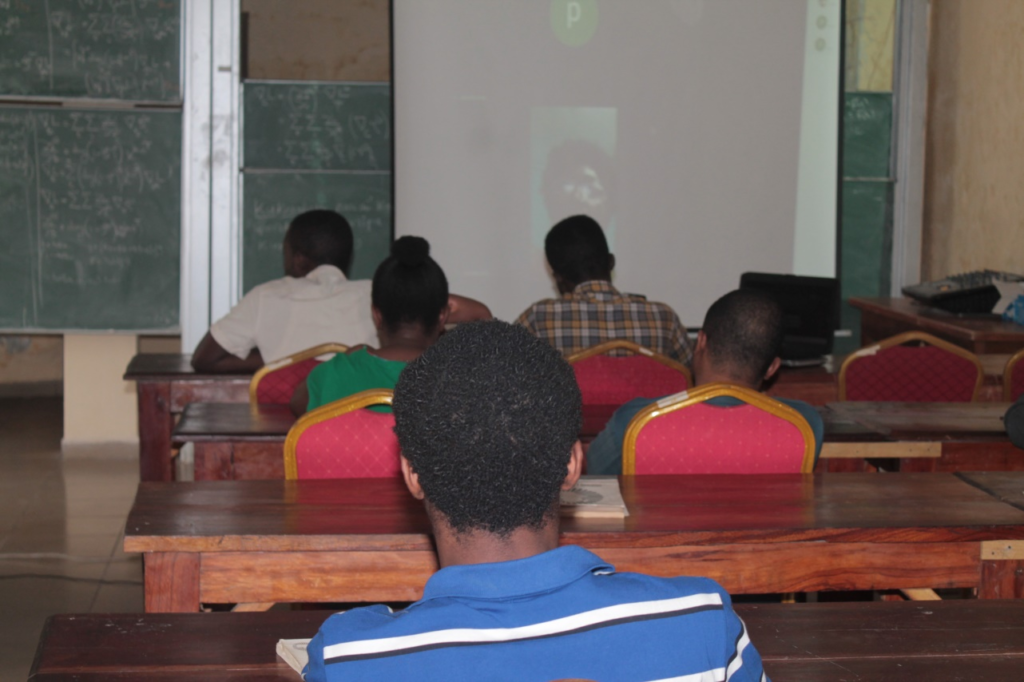AIMS-Cameroon, on June 30th 2020, organized the 1st session of the AIMS Women in Science (AIMSWIS) Climate Science Speaker Series. The aim was to fuel the passion of the AIMS-Cameroon community, especially young women, towards joining the Climate Change fight and solving the challenges to Africa’s development resulting from climate change.
Featuring 26 participants, 12 being female, the event was marked by a virtual talk delivered by Mme. Priscilla Ngie Nde Tuma, PhD fellow and assistant lecturer at the Catholic University of Bamenda, Cameroon, on the topic “Climate change issues, Health, and Gender”. In her talk, she hammered on the accelerating effects of climate change on health and gender, their direct and indirect consequences, not leaving out mitigation and adaptation strategies.
“Climate change and health imbalances are two of the greatest challenges to gender issues in the 21st century” she said.
Expounding on the effect of climate change on gender, Madam Priscilla Ngie Nde Tuma stated that the causes of climate change drivers affect men and women differently with low income earners experiencing significantly higher pressure in mitigating the effects.
“For instance, Children and women (disabled and elderly) are the most vulnerable who suffer the burden of water scarcity as they sometimes walk long distances for days in search of water” she said.
She further noted that the scourge of malaria is higher and a reduced food intake is observed among the elderly who suffer limited mobility, thus, there is an overarching need to do all that is possible to eliminate conditions that promote these vulnerabilities.
As a recommendation, she discussed the government giving women a chance to advice on how funds given to poor countries are distributed and used in combating the effects of climate change. In addition, she highlighted that poverty alleviation programs and a more effective approach to fact-tract the empowerment of women in the society will do tremendous good in mitigating the effects of climate change.
In her closing remarks, she encouraged AIMS Alumni to engage in capacity development by using their big data skills and expertise to inform stakeholders on how to better mitigate the effects of climate change in their respective countries.
Speaking to one of the participants after the program, Agnes Wambui was pleased to have broadened her knowledge-base on climate change and how to bring about the needed change.
“I am now aware that climate change will widen the gender divide in the world therefore we need to empower women and other minorities to enable them mitigate the effects of climate change and exploit opportunities brought by climate change. This revelation has helped me to better understand the issue of climate change and how I can contribute to solve it” she divulged.

